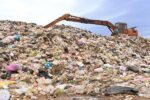A four-day working week will not only improve wellbeing – it could save the planet
A shorter working week has re-emerged as a prominent subject of political and economic discussion in recent years, with the TUC, the Green Party and Labour taking a reduction of working hours seriously as a policy that could increase workers’ well-being, boost productivity and face the challenges of automation. In Germany, the IG Metall, Europe’s largest industrial union, led a strike last year that mobilized 1.5 million workers and won the option to individually reduce working time from 35-hours per week to 28-hours per week, while securing the option to return to full-time employment afterwards. While a shorter working week is often framed as a tool to fix a broken economic model that is working for the few, rather than for the many, the increased interest in working time reductions coincides with the emergence of powerful global movements that highlight another crisis that is facing humanity today: the depletion of resources, the degradation of our natural environments and above all the rapid heating-up of our planet. Here, too, pressing issues of intra- and intergenerational justice emerge, with people in the global south and the poor more likely to suffer the fall-out of an economic system that largely favours the capital-owning class in the global north. For decades now, the sustainability debate has largely been dominated by calls for ethical consumption, rather than facing the systemic root of the problem: an economic system that prioritises profit-making over workers’ well-being and even the preservation of the very natural basis of our collective life. To develop a sustainable economic model, it is becoming clear that we need to break with the imperatives imposed by the necessities of capital accumulation (endless “growth”) and find a way to provide a decent standard of living while honouring planetary boundaries. At the same time, our current working time and […]










